News
How To Potty-Train A Dog

How To Potty-Train A Dog
We all know that training your dog or puppy how to potty can be challenging. But the fact of the matter is that proper potty training is important for creating a happy, long life together. Never fear, Pets Go Here is near and here to help you master the process of potty training by following these set of tips and tricks!
Start Potty Training Young
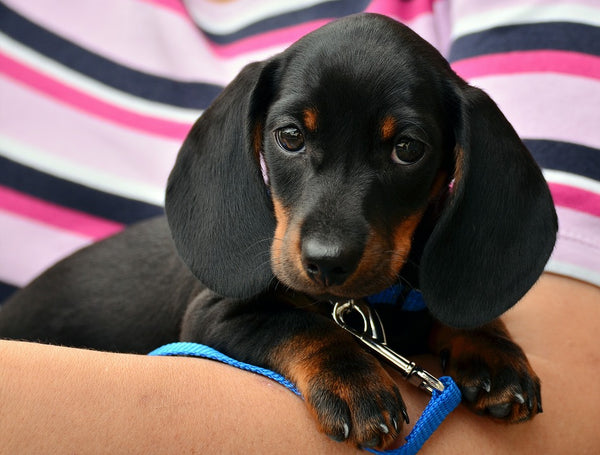
Traditionally, dog training, in general, has been delayed up until a puppy is 6 months old. Doing this, however, means that you will be training your dog at the juvenile stage which is a poor time to begin. This is because, during this time, their adult patterns of behavior are beginning to take hold. Any good breeder will recommend 12 to 16 weeks old is a good age to start due to the fact that they have better control and have the ability to hold their bladder and bowel movements. If your potty training an older dog, no worries, just follow the same process to be discussed.
Define Space For Potty Training
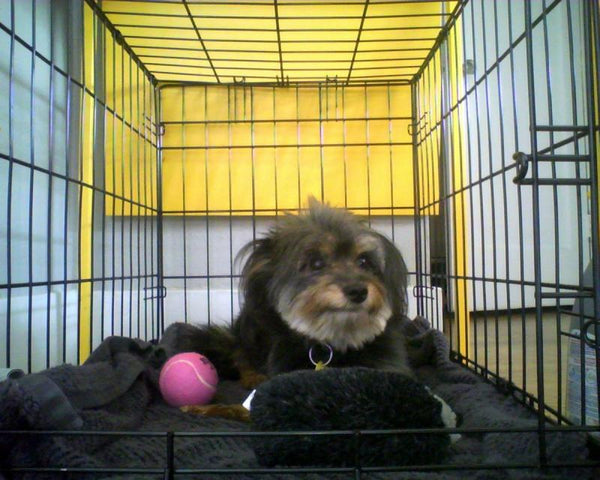
Creating a confined space for your puppy is important. It doesn't matter if it's a room, on a leash, or a crate, but crate training is one of the best ways of starting your puppy off on the good paw. Dogs, by their very nature, tend to keep their den's clean. It's critical to select a crate that is the right size though. Meaning, large enough for your puppy to stand, turn around and lie down, but not any larger. Otherwise, your puppy may learn to potty in a corner and carry on in another, which defeats the very purpose of potty training with a crate.
Observe Your Dog's Habits
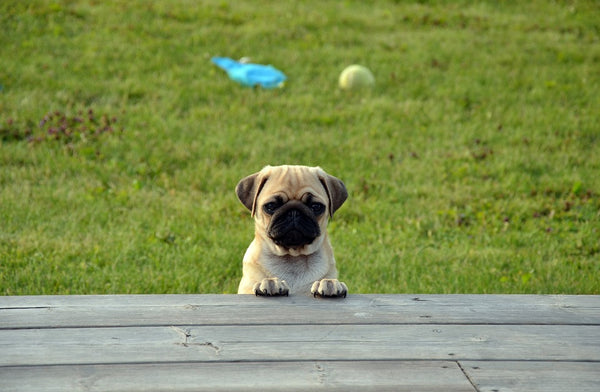
If you want to understand your puppy, watch them carefully. Learn their unique signals and get in sync with their natural rhythms. Puppies tend to sniff the ground around them when nature is about to calls. But you may see other signals before they start to sniff, such as pacing around in a circle beforehand.
Create A Potty Training Schedule

Understand that any puppy is not old enough to master self-control starting out. So this means you will be the one who sets the blueprint for your dog's routine when potty training. Creating a basic schedule tends to make potty training much easier and ensures a faster rate of success. Take your puppy outside during these times:
- In the morning as soon as you wake up: But make sure that you stay calm and speak softly to avoid any accidents from over-excitement caused by an enthusiastic morning greeting.
- After nap time: The first reaction for any dog, when waking up from a nap, is to use the bathroom.
- During playtime and after playtime: Dogs are easily excited and so your dog may be so excited they don't even know they need to go when it's time to go outside.
- Between 5 to 30 minutes after they eat: The time it takes for your furry canine to go to the bathroom boils down to understanding your particular puppy's natural rhythm as stated earlier. It may even take an hour depending on the size of the dog. But taking them outside after meals give them a chance to go potty before it becomes an emergency.
Reward Your Puppy For Good Potty Behavior
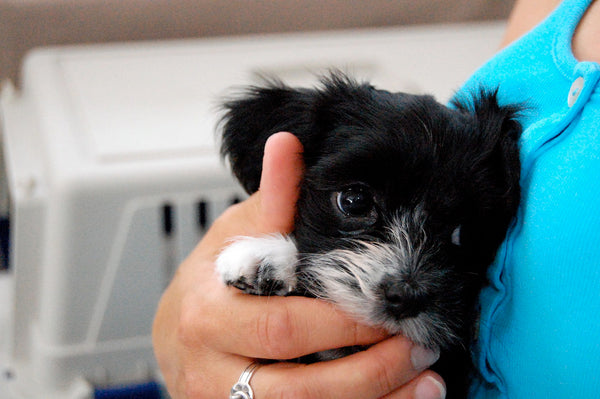
While training, there will be setbacks. If you keep a consistent routine and patience you have nothing to worry about. However please don't punish your pup by rubbing their nose in their waste or hitting them on the head. Think about how that would work for you, especially as an adult so even your older dog shouldn't be treated this way either. Instead, praise them for using the bathroom outside. Jump for joy, clap, cheer for them and give them a treat. Act like it's the best thing you've ever seen as it's the little things that make your dog love life that much more. Praising your dog also works to strengthen the pet-owner bond that's so important to their lives.
Control Your Dog's Diet
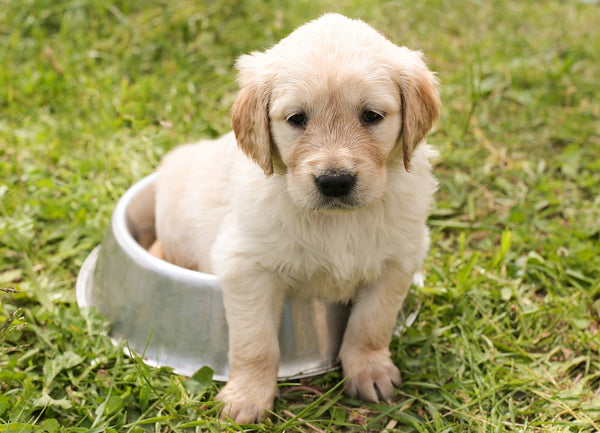
Puppies, in particular, have an underdeveloped digestive system meaning that they don't have the ability to handle a lot of food. This is why any veterinarian will tell you to break up mealtime into 3 small meals. Also, note the quality of food you choose needed to agree with your pup's stomach. The best way to find out if you need to change your dog's diet is by examining their stool. If your puppy's stools are loose, extremely stinky, and substantially large then it may be time to talk to your local veterinarian about changing their diet. Likewise, overeating can cause your puppy to have diarrhea, making the task of potty training even more difficult.
Conclusion
As discussed, there are a number of factors to consider how long it takes for your dog to master using the bathroom at the right place and time. A 12-week old puppy will adapt differently than a 6-month-old puppy. Some pups have perfect manners and master potty etiquette after a couple days. Others may take months, especially if your dog came from a less than perfect environment before you took them in. No matter the case, through patience, and consistency, most dogs will learn acceptable potty behavior.









